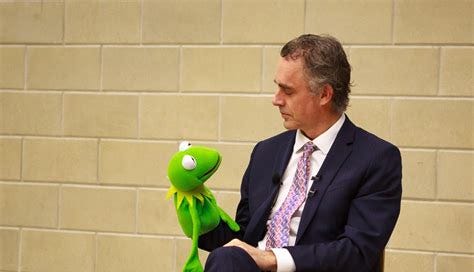For a self-described atheist, I sure have been having great conversations with very religious people lately!
There’s David Gornoski, and Domenic Scarcella, and of course my many conversations (here, here, here, here, here, and here) with the great Bob Murphy. The intro of his Bob Murphy Show describes Bob as “a Christian, and economist” and both of these areas are covered deeply in his episode content.
So much of the discussion about metaphysical matters centers on what you believe and why you believe it. These are important questions, of course. But I can’t help noticing how these discussions tend to overshadow a much more important concept — one Ludwig von Mises famously emphasized.
Jordan Peterson and Sam Harris had a couple very popular discussions a while back. They argued about what “truth” was. They discussed morality and its source. Famously, Sam pressed Jordan on whether or not he “believed” in God.
Jordan squirmed a lot at this. Finally, he said that he acted as though he did. Sam considered this a cop out. Most people did. Even I did. Just say what you believe, man!
But as I continued to think about the exchange (and the deeper one that followed, where Jordan tried to provide elements of what he considers God to “be”) I began to appreciate this cryptic answer more and more. What you believe is important. So is what you say. But the real essence of who you are and what you are is borne out by how you act.
This is a very Misesian point. What you say you believe — even what you think you believe — these things are often belied by your actions. Surveys don’t tell you what a person does or will do. Only demonstrated preferences and values are real. The hierarchy of values you enact matters much much more than the one (or ones) you profess.
I like Jordan Peterson’s approach of finding the deep meaning and insights that can be found in the oldest narratives of our species. I really enjoyed his book Maps of Meaning. We moderns tend to forget or ignore important truths that we discovered long long ago.
I also really like religious people — a whole bunch of them, anyway. It’s because of the way they act in the world. Their demonstrated hierarchy of values very closely mirrors my own.
Isn’t that much more important than what we profess to believe?
Naturally,
Adam
PS: If you want to see more of the things I believe — and that inform the way I act — check out Liberty Classroom!




I have a minor quibble: actions demonstrate your *preference*, not your belief. Beliefs can be very complex, and two very different beliefs can take the same action. A simple example is when we observe that the wise man and the fool do the same thing. It's the midwit, with just enough knowledge to be dangerous, who gets wrapped around the axle and does something different. That being said, an action can be incompatible with a belief and can thus falsify the proposition that someone believes something, but only within a lot of assumptions, and a lot of things can be missed just because they are hard to articulate when one expresses one's beliefs.
Thanks for the shoutout :-)
As I've also found, having conversations with intelligent people who are capable of sharper, deeper, broader seeking, will often cross traditional boundaries.